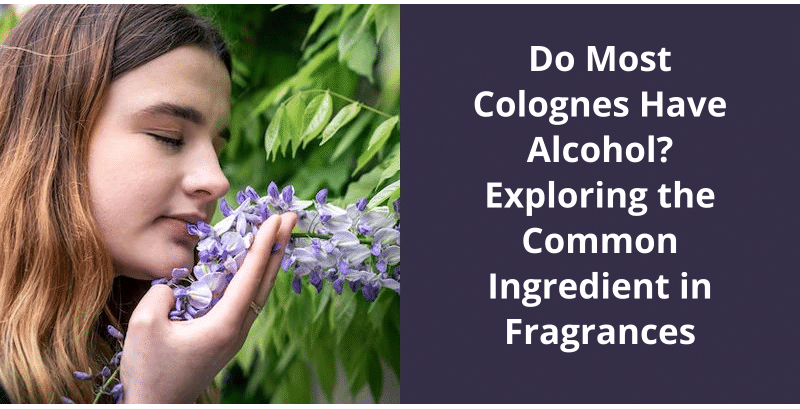Describing an earthy perfume can be quite an aromatic journey. Earthy perfumes often exude a natural and grounding scent that captivates senses with notes that are reminiscent of rich loamy soil, damp moss, or the aroma of woods after a rain shower. These fragrances tend to be complex and deep, with undertones that can include nuances of musk, leather, or vetiver, evoking a sense of wilderness or a walk in a lush forest. They are typically associated with warmth and maturity, possessing a unique and bold character that stands out. Given their strong connections to nature, earthy scents can be invigorating and comforting, providing a sense of balance and tranquility.

How Do You Describe an Earthy Scent?
When attempting to describe an earthy scent, it’s important to evoke imagery that transports the reader to a world deeply immersed in nature. Earthy fragrances encapsulate the essence of the earth itself, conjuring up images of damp soil, moss-covered rocks, and the crispness of the air after a refreshing rain shower. These scents radiate a sense of groundedness and connection to the natural world, inviting us to explore the abundance of life that thrives within the forests and woodlands.
Different Types of Earthy Scents and Their Characteristics.
Earthy perfumes are a sensory exploration of nature’s fragrance, capturing the essence of the earth in a bottle. These scents evoke a connection to the natural world, with characteristics that vary depending on the specific type of earthy scent.
One common earthy scent is Patchouli, which is rich, woody, and musky, often associated with the 1960s counter-culture movement. It’s an exotic and mysterious feel.
Vetiver is another earthy note, known for it’s grassy and smoky aroma. It’s often used as a base note in perfumes and adds depth and complexity to a fragrance.
Moss and mossy scents bring a damp and forest-like quality to perfumes. They can be fresh and green, or more complex with hints of earth and vegetation.
Other earthy scents include damp soil, damp leaves, and forest floor, all of which evoke the natural smells found outdoors. These scents can range from fresh and clean to deep and musky.
Overall, earthy perfumes offer a unique olfactory experience, bringing the essence of nature to our senses and allowing us to connect with the natural world even when indoors.
Perfume, fragrance, redolence, and scent are all words that capture the essence of a delightful odor. Each term carries a distinctive nuance, with perfume often implying a more intensified or potent scent. These three words encapsulate the vast range of olfactory experiences that can be evoked by various aromas and fragrances. So, what’re some other ways to describe the enchanting world of perfumes? Let’s explore and uncover the beauty within.
What Are Three Words to Describe a Perfume?
When it comes to describing a perfume, there are countless words one could use, but three that truly capture the essence of an earthy fragrance are woody, musky, and enchanting. These words evoke a sense of natures raw beauty and the allure of the natural world. A woody perfume exudes the rich and warm scents of trees and forests, capturing the essence of a walk through the woods on a crisp autumn day. The fragrance dances on the skin, enveloping the senses with it’s earthy and grounding notes.
Meanwhile, a musky perfume reveals a deeper and more mysterious side. It possesses a captivating and sensual quality that lingers in the air long after it’s applied. This fragrance evokes images of a hidden oasis, where exotic flowers bloom under a moonlit sky. It’s bold and alluring, leaving a lasting impression on those who encounter it.
An enchanting perfume, on the other hand, takes the senses on a whimsical journey, like a stroll through a magical garden. It combines floral and herbal notes to create a spellbinding scent that transports you to a place of beauty and wonder. It’s an ethereal quality, weaving a tapestry of aromas that invite you to explore the mysteries of nature.
These three words not only describe a perfume, but also evoke the sensory exploration of natures fragrance. They paint a vivid picture of the olfactory experience, inviting you to immerse yourself in the scents that are reminiscent of the earth itself. Each word adds depth and dimension, creating an olfactory symphony that awakens the senses and invites you to explore the natural world through the power of fragrance.
Source: 21 Synonyms & Antonyms of PERFUME – Merriam-Webster
There’s something captivating about a fragrance that takes you back to the earth, evoking familiar scents of damp soil, wooded trails, and fresh rain. The earthy family of perfumes embodies these natural elements, drawing upon the rich notes of roots, moss, and grass. Key essential oils such as patchouli, oakmoss, and vetiver play a crucial role in creating these grounding and nature-inspired scents. If you’re seeking a perfume that mirrors the essence of the earth, keep an eye out for these aromatic ingredients that bring a sense of harmony and connection to the world around us.
What to Look for in Perfumes for an Earthy Smell?
When searching for perfumes with an earthy smell, there are several key characteristics to look for. Earth scents are defined by their grounding and natural qualities, often evoking images of damp forests and rich soil. To recreate this sensory experience, perfumes in this category typically feature notes such as roots, moss, and grass.
One of the most important essential oils in earthy perfumes is patchouli. It’s musky and spicy undertones provide a multi-dimensional scent that’s both comforting and intriguing.
Another essential oil commonly found in earthy perfumes is oakmoss. As the name suggests, oakmoss delivers a mossy and earthy scent reminiscent of damp forest floors. It adds a touch of freshness and depth to the fragrance, making it a popular choice for those seeking a truly natural aroma.
Vetiver, with it’s rooty and smoky scent, is also a significant essential oil in the earthy fragrance family. It’s earthy aroma is often described as soothing and meditative, making it a perfect choice for those who seek a connection to nature.
Overall, an earthy perfume aims to create a sensory exploration of natures fragrance. By using roots, moss, and grass, along with essential oils like patchouli, oakmoss, and vetiver, these perfumes successfully transport the wearer to the heart of the natural world.
Different Variations of Earthy Scents: While Patchouli, Oakmoss, and Vetiver Are Common Essential Oils Used in Earthy Perfumes, There Are Many Other Ingredients That Can Create an Earthy Smell. This Section Could Discuss Different Variations and Combinations of Earthy Scents, Such as Sandalwood, Cedarwood, or Musk.
In addition to patchouli, oakmoss, and vetiver, there are several other essential oils that can create an earthy scent in perfumes. Some examples include sandalwood, cedarwood, and musk. These ingredients can be used individually or combined to create different variations of earthy perfumes. By experimenting with different oils and their proportions, perfumers can create unique and captivating earthy fragrances that capture the essence of nature.
Understanding the classification of perfumes can greatly simplify the process of choosing the perfect scent. Perfume families serve as a helpful framework for both enthusiasts and shoppers alike, categorizing fragrances into distinct groups such as woody, floral, amber, and fresh. By recognizing these distinct scent families, individuals can easily identify their preferences and explore fragrances that align with their olfactory preferences.
How Would You Classify the Smell of Perfume?
When it comes to describing perfume, one of the first steps is to classify it’s smell into different families. This helps both perfume shoppers and connoisseurs simplify the process of understanding and experiencing fragrances. The four main scent families are woody, floral, amber, and fresh. Each family has it’s own unique characteristics and evokes different emotions and sensations.
The woody family encompasses perfumes that have a distinct earthy and warm scent. They often evoke images of dense forests, aged wood, and a cozy sense of comfort. Perfumes in this family may contain notes of sandalwood, cedar, or patchouli, which give them their rich and deep aroma. The woody scent family is often associated with grounding and calming qualities, making it a popular choice for those seeking a sense of stability and connection to nature.
Floral fragrances, on the other hand, embody the natural scents of blooming flowers. These perfumes radiate elegance and femininity, with notes of rose, jasmine, and lily often dominating the compositions. They evoke images of vibrant gardens and can evoke feelings of romance, freshness, and beauty. Floral perfumes are a timeless choice for individuals who appreciate the delicate and alluring essence of natures flowers.
Amber fragrances are known for their warm and sensual qualities. They often contain notes of vanilla, benzoin, and labdanum, which create a rich and resinous aroma reminiscent of amber itself. Perfumes in this family evoke images of exotic spices, warm and cozy fires, and evoke a sense of intimacy and allure.
Lastly, the fresh scent family captures the crisp and invigorating fragrances reminiscent of nature after a rain shower. These perfumes often contain notes of citrus, aquatic elements, and green accords, creating a refreshing and revitalizing experience. They evoke images of dewy mornings, lush green landscapes, and invoke a feeling of energy and vibrancy. Fresh fragrances are a popular choice for those seeking a clean and uplifting scent that’s perfect for everyday wear.
Perfume Ingredients: Taking a Closer Look at the Specific Ingredients Used in Perfumes, Such as Essential Oils, Synthetic Compounds, and Natural Extracts, Could Provide Insight Into the Complexity of Fragrance Creation and the Impact It Has on the Final Scent.
- Taking a closer look at the specific ingredients used in perfumes, such as essential oils, synthetic compounds, and natural extracts, could provide insight into the complexity of fragrance creation and the impact it’s on the final scent.
These naturals oils not only provide a pleasant scent, but they also offer nourishing benefits for your skin. Additionally, avoid perfumes that contain synthetic fragrances, as these can be irritating and potentially harmful to your health. Keep an eye out for organic certifications or eco-friendly packaging, as they can indicate a commitment to sustainability. Taking these factors into consideration will help you find a natural perfume that aligns with your values and promotes a healthier lifestyle.
What Should I Look for in a Natural Perfume?
Also keep an eye out for any synthetic ingredients or fragrances that might be listed. These can be a red flag that the perfume isnt truly natural. Additionally, look for certifications or endorsements from organizations that verify the products natural or organic status.
When it comes to describing an earthy perfume, there are several characteristics and scents that are commonly associated with this category. Earthy fragrances often have a grounding and calming effect, evoking a sense of being connected to nature. These perfumes often feature notes such as patchouli, vetiver, oakmoss, and sandalwood, which can create a deep and earthy base.
For example, you could mention the grounding and calming effect that the fragrance has, or how it transports you to a peaceful forest or a serene mountain top. Describing the fragrances connection to nature and the outdoors can help to paint a vivid picture for your readers.
Another aspect to consider when describing an earthy perfume is it’s longevity and sillage. Earthy fragrances are often known for staying power, lingering on the skin for hours or even the entire day. You could mention how the scent gradually develops and evolves over time, or how it envelops you in a comforting and intimate aura.
By focusing on the ingredients, scents, and emotions that are associated with this category, you can create a sensory exploration of natures fragrance that resonates with your readers.
Tips for Finding and Supporting Local or Artisanal Natural Perfume Brands
- Research local perfume brands in your area
- Visit farmer’s markets or craft fairs to find artisanal perfume makers
- Check online directories or social media platforms for local or artisanal perfume brands
- Read reviews and testimonials from customers who’ve tried these brands
- Attend fragrance events or perfume exhibitions to discover new local brands
- Join online perfume communities or forums to get recommendations from fellow perfume enthusiasts
- Support local businesses by purchasing from them directly or through local retailers
- Attend workshops or classes offered by artisanal perfume brands to learn more about their craft
- Spread the word about your favorite local perfume brands to help support their growth
Conclusion
Through a sensory exploration, we can truly appreciate the unique qualities of these fragrances, allowing us to connect with the natural world in a profound and intimate way.





